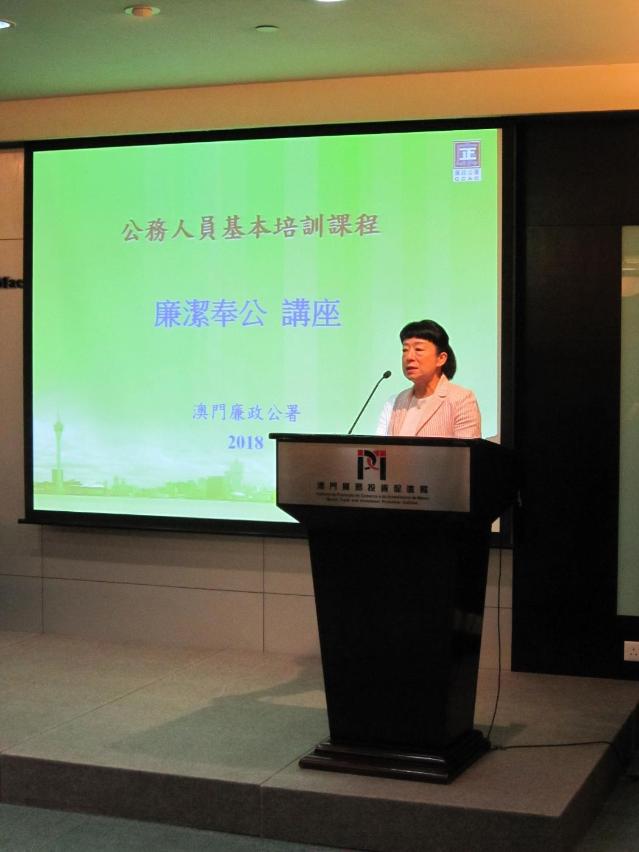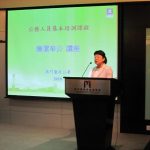 IPIM’s Acting President Irene Va Kuan Lau hopes that the seminar will enhance staff’s awareness and uphold the principle of being clean and law-abiding in their positions
IPIM’s Acting President Irene Va Kuan Lau hopes that the seminar will enhance staff’s awareness and uphold the principle of being clean and law-abiding in their positions
The Macao Trade and Investment Promotion Institute (IPIM) attaches great importance to the integrity, law-abiding awareness and professional ethics of all of its staff. To enhance integrity awareness, IPIM invited the Commission Against Corruption (CCAC) to organise an integrity promotion seminar on 13 November, to better complement the orderly implementation of Government policies.
CCAC representative was invited to speak at the seminar and the event was participated by over 60 IPIM personnel including the Acting President Irene Va Kuan Lau, Executive Directors Sam Lei and Agostinho Vong, departmental heads, front-line services personnel and new recruits.
IPIM’s Acting President Irene Va Kuan Lau said that the seminar further enhanced staff’s understanding and awareness of probity, particularly in upholding the principle of being clean and law-abiding in their positions. IPIM will invite CCAC to organise more thematic seminars in future to constantly promote integrity among the staff.
During the seminar, the representative from CCAC talked about the major roles of CCAC and integrity building. Detailed information was also provided on areas such as common duty-related crimes applicable to civil servants, the Ombudsman and conflict of interests. Cases were also cited to explain and analyse unlawful acts which may constitute a breach of honesty and integrity while acting in an official capacity, to appeal to the participants to exercise vigilance and uphold high standards of integrity and probity.



